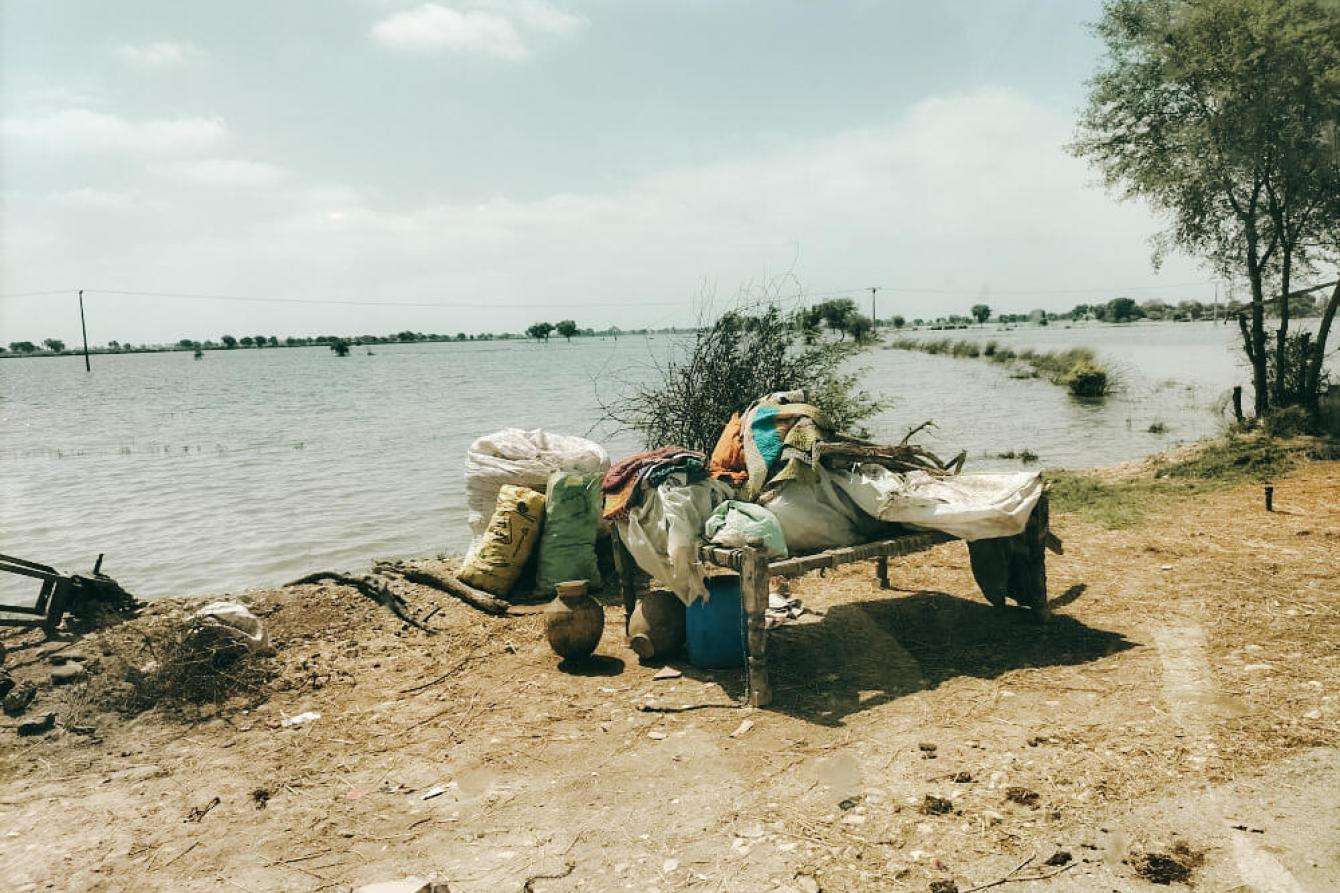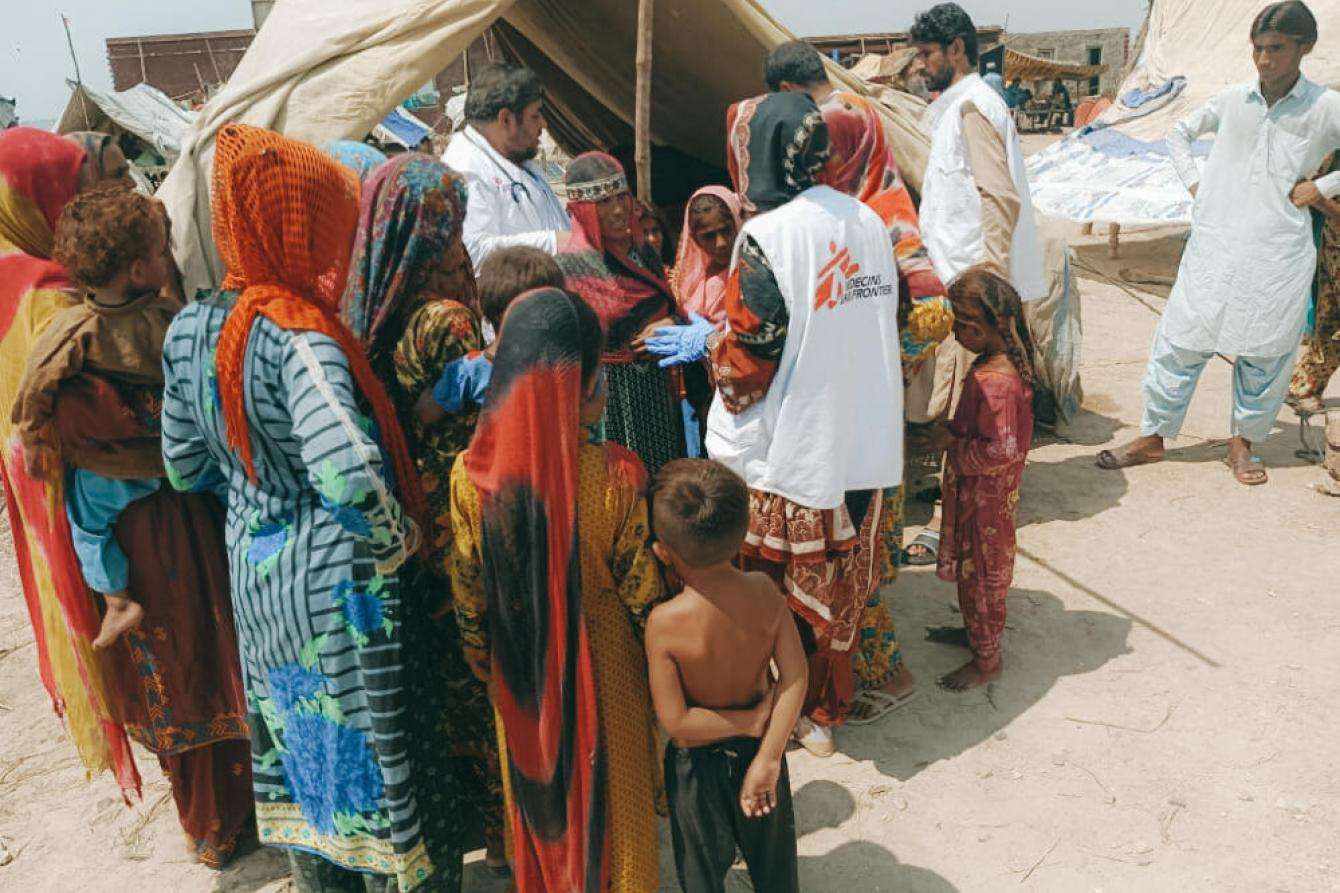Shahid Abdullah, MSF’s emergency field coordinator in Balochistan, describes the situation on the ground in flood-affected areas of Pakistan:
"People are sitting alongside the main road, and you can see that many of them have already received help. They have—among other things—mosquito nets, hygiene packs, and food.
On the other hand, those who are away from the main road are left on their own because they are difficult to access. We reached a group that had not received help since the floods started. MSF was the first to get to them. Our team took care of them and helped with the health issues they were experiencing.
Stagnant water leads to ill health, and the situation is not likely to improve. We are seeing patients with waterborne diseases such as diarrhea, malaria, skin diseases, and eye infections.

The challenges are many and great. There is a struggle to access medicine and human resources—both doctors and nurses. In many areas, it is very difficult to reach people. We are trying to help as best as possible.
It is heartbreaking to see how mud houses have been completely washed away by the water. They have largely disappeared. In many places, the water is standing high and the only thing people can do is wait for it to fall again. It’s terrible. Those who can either walk or swim through the water. However, there are many who simply cannot do anything but wait for the water to recede or for someone to come and help them.
Only half an hour to an hour outside the city you come across huge masses of water. Water standing meters above the ground. Here in the city, there are also traces of the water. Both on public buildings and on the terrain.

Many people have lost everything. In addition, because they live at the roadside, they do not have access to clean water and toilets. For women, it is particularly difficult because they have to go to great lengths to meet their needs. People find it difficult to protect themselves from the extreme temperatures we experience—up to 122 degrees Fahrenheit. Some of those sitting on the side of the road have only some hand-woven beds stacked on top of each other with a piece of cloth or plastic to shield them from the sun.
At our hospital, we see many children who have been born with malnutrition. This was the case before the floods, but the current situation may contribute to a worsening of their condition. People here already live a hard life, so it is hitting them even harder.
There are such huge needs, we are happy that we can be here to help.”




